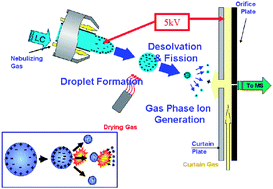LC, LC-MS/TOF and MSn studies for the separation, identification and characterization of degradation products of ritonavir†
Abstract
The objective of the present study was to explore the

* Corresponding authors
a
Department of Pharmaceutical Chemistry, SVKM's NMIMS, School of Pharmacy and Technology Management, Near Bank of Tapi River, Agra-Mumbai Road, Babulde, Shirpur Dist., Dhule, Maharashtra, India
E-mail:
ravisun4@rediffmail.com
Fax: +91-2563-286552
Tel: +91-2563-286545
The objective of the present study was to explore the

 Please wait while we load your content...
Something went wrong. Try again?
Please wait while we load your content...
Something went wrong. Try again?
R. N. Tiwari and C. G. Bonde, Anal. Methods, 2011, 3, 1674 DOI: 10.1039/C1AY05140G
To request permission to reproduce material from this article, please go to the Copyright Clearance Center request page.
If you are an author contributing to an RSC publication, you do not need to request permission provided correct acknowledgement is given.
If you are the author of this article, you do not need to request permission to reproduce figures and diagrams provided correct acknowledgement is given. If you want to reproduce the whole article in a third-party publication (excluding your thesis/dissertation for which permission is not required) please go to the Copyright Clearance Center request page.
Read more about how to correctly acknowledge RSC content.
 Fetching data from CrossRef.
Fetching data from CrossRef.
This may take some time to load.
Loading related content
